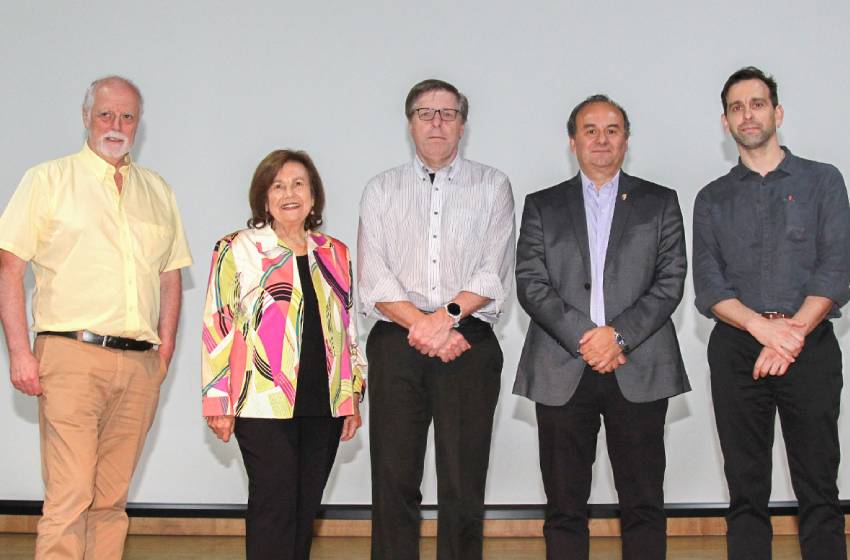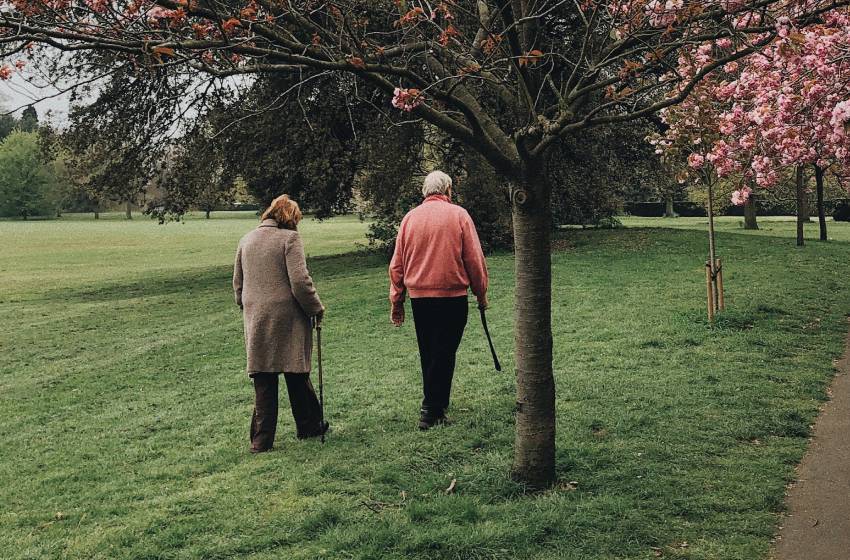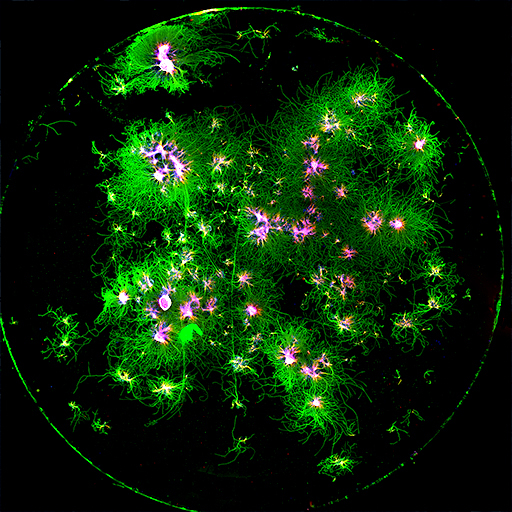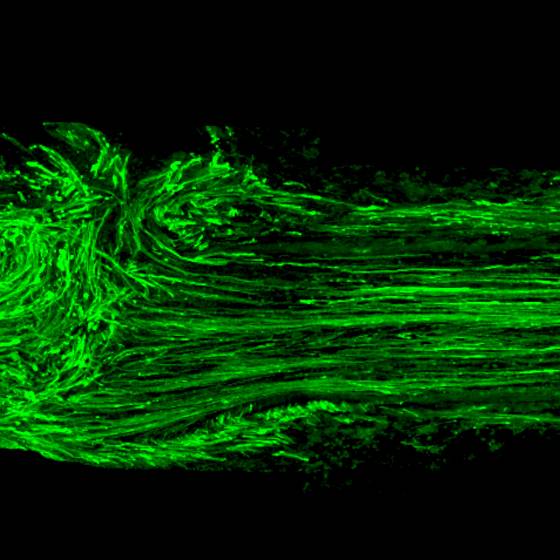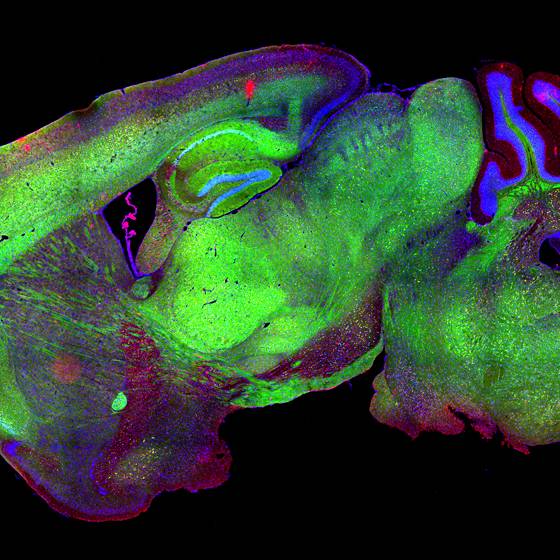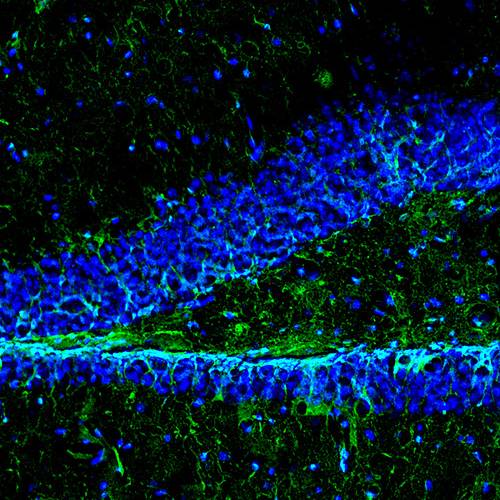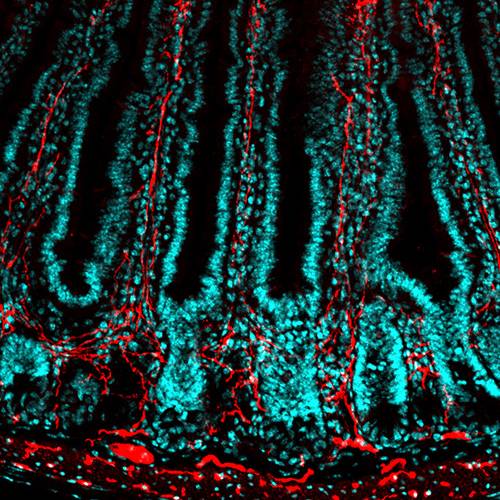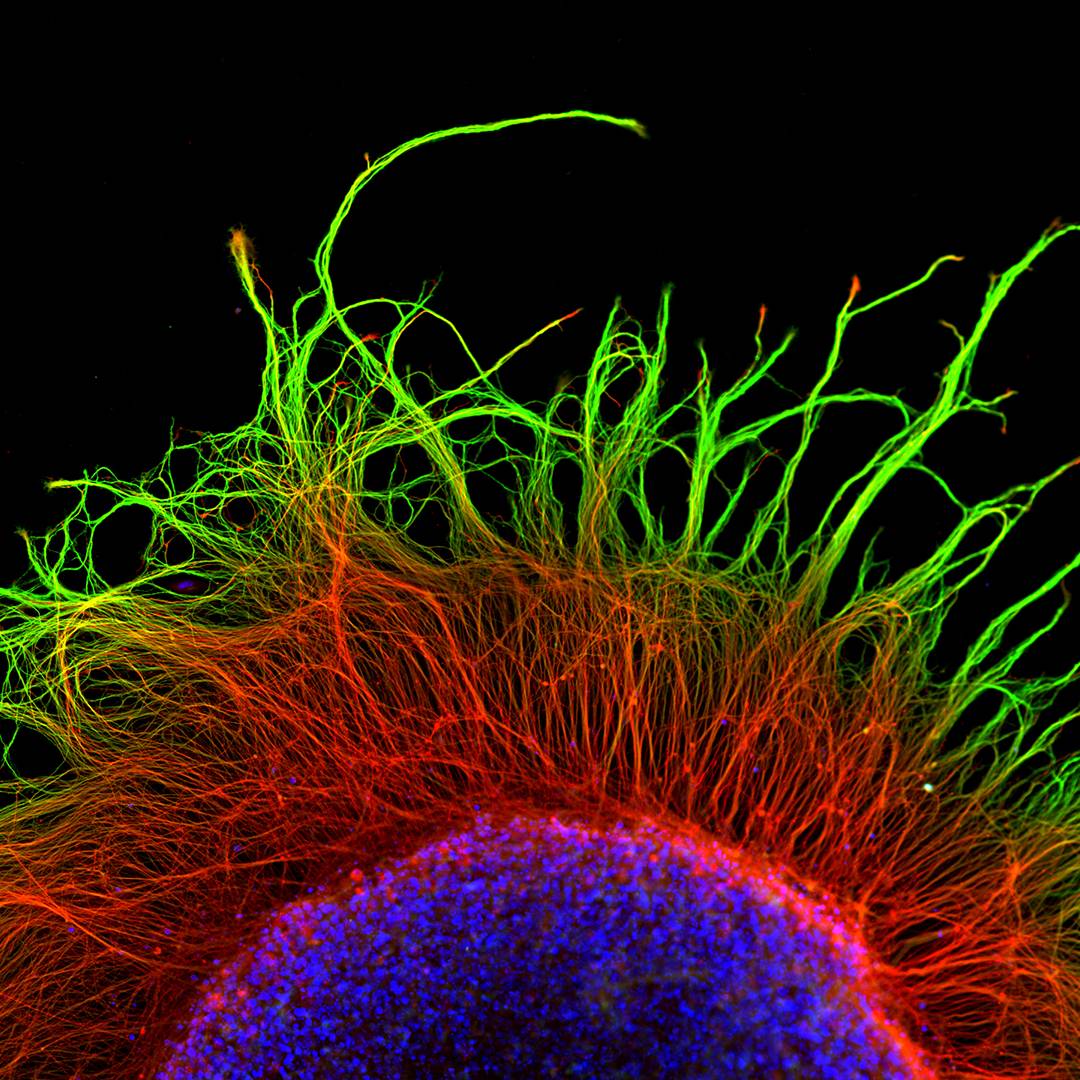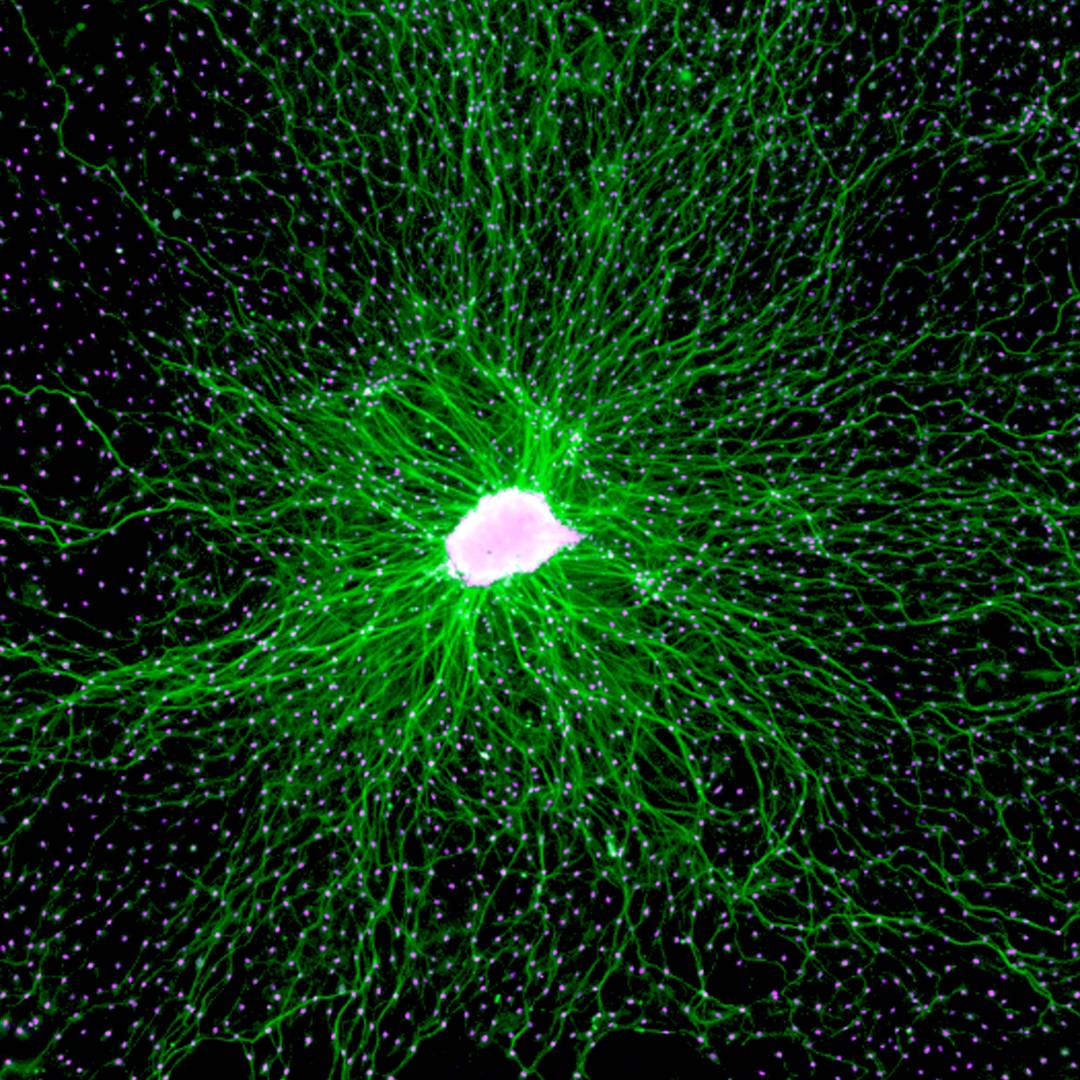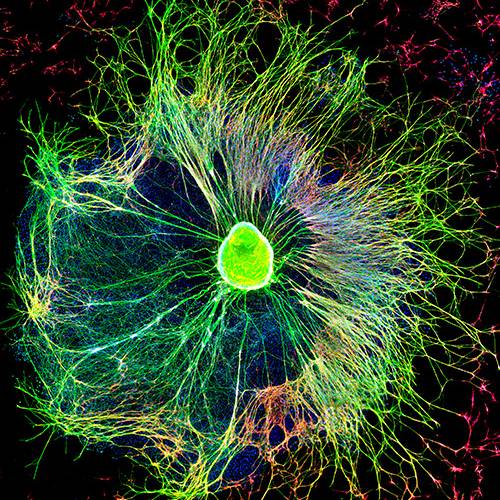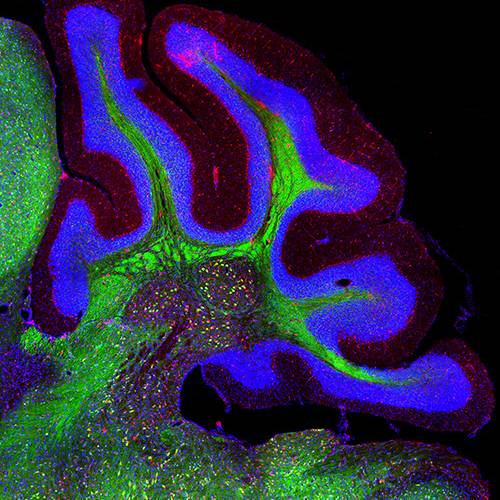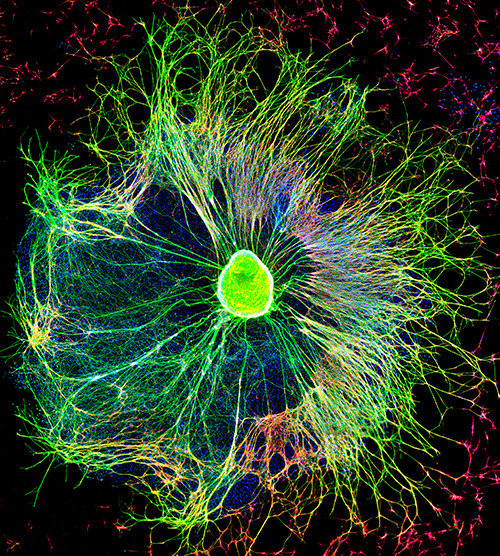Axonal Degeneration as a target for neuroprotection
Destruction programs are cellular mechanisms that have survival value when they operate under physiological control, but their malfunction could be deleterious for the organism. Apoptosis, or programmed cell death, is a well-known physiological destruction mechanism most apparent during development but persisting throughout the organism’s life. Other destruction programs are emerging as physiological processes that may not terminate in the destruction of the whole cell but only of restricted cellular domains. In the case of neurons, pruning of exuberant branches of terminal arborizations and degeneration of axons severed from their cell bodies are outstanding examples. Importantly, axonal degeneration is an early event in neurodegenerative condition including Alzheimer´s and Parkinson disease, as well as peripheral neuropathies. We are interested to define molecular players in the process of axonal degeneration to find therapeutic targets for neuroprotection.
Golgi staining of a mouse hippocampal section, with this technique, sparse neuronal labelling is obtained, which allows detailed analysis of individual neurons.
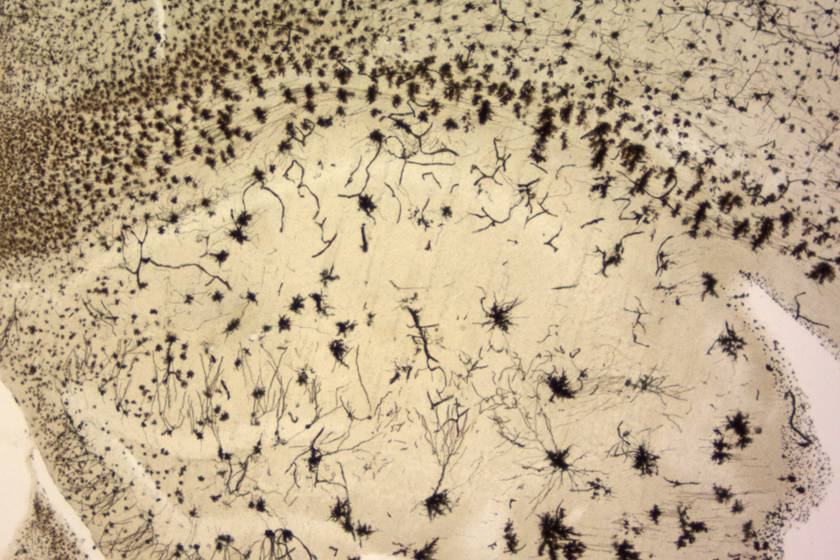
The degeneration of axons constitutes a salient feature shared by several neurodegenerative diseases that contributes to neuronal dysfunction and cell death. To date, the precise molecular and cellular mechanisms of axonal degeneration are under intense investigation. The morphological evidence indicates that axon degeneration as a consequence of aging and neurodegenerative diseases takes place in a retrograde fashion also known as dying back degeneration, which precedes cell death of the neuronal soma. Axon degeneration shares several characteristics with cell death by activation of the necroptotic signaling pathway, including mitochondrial dysfunction, ROS production, and intracellular calcium increase, and we have found that necroptosis inhibition by genetic or pharmacological means delays axonal degeneration in neurons from the peripheral and central nervous systems, as well as in model of Alzheimer´s and Parkinson Disease.
People involved

Macarena Arrazola
PI collaborator

PhD in Biological Sciences from the Catholic University of Chile. Studying the contribution of necroptosis in the age-associated axonal degeneration of the hippocampus, and the impact of using pharmacological approaches to revert neuronal dysfunction and cognitive impairment during aging, proposing necroptosis as an attractive target for the future development of geroprotective tools to treat age-related disabilities.

Daniela Rebolledo
Senior Research Assitant

BI am a Biochemist from Pontificia Universidad Católica de Chile (PUC) and PhD in Cell and Molecular Biology from the same university. My PhD thesis research was performed at the Physiology and Biophysics department, University of Washington. My research has focused on the physiology of the neuromuscular system and the pathological mechanisms behind neuromuscular disorders of diverse etiology.

Genesis Vega
Postdoctoral fellow

Bachelor’s degree in Biochemistry at the Universidad Austral de Chile. PhD in Sciences with mention in cellular and molecular biology at the Universidad Austral de Chile carried out at CECs and University of Heidelberg. Studying the role of NAD+ imbalance in the activation of necrosome and dysfunction of mitochondrial metabolism in chemotherapy-induced axonal degeneration in aged peripheral neurons.
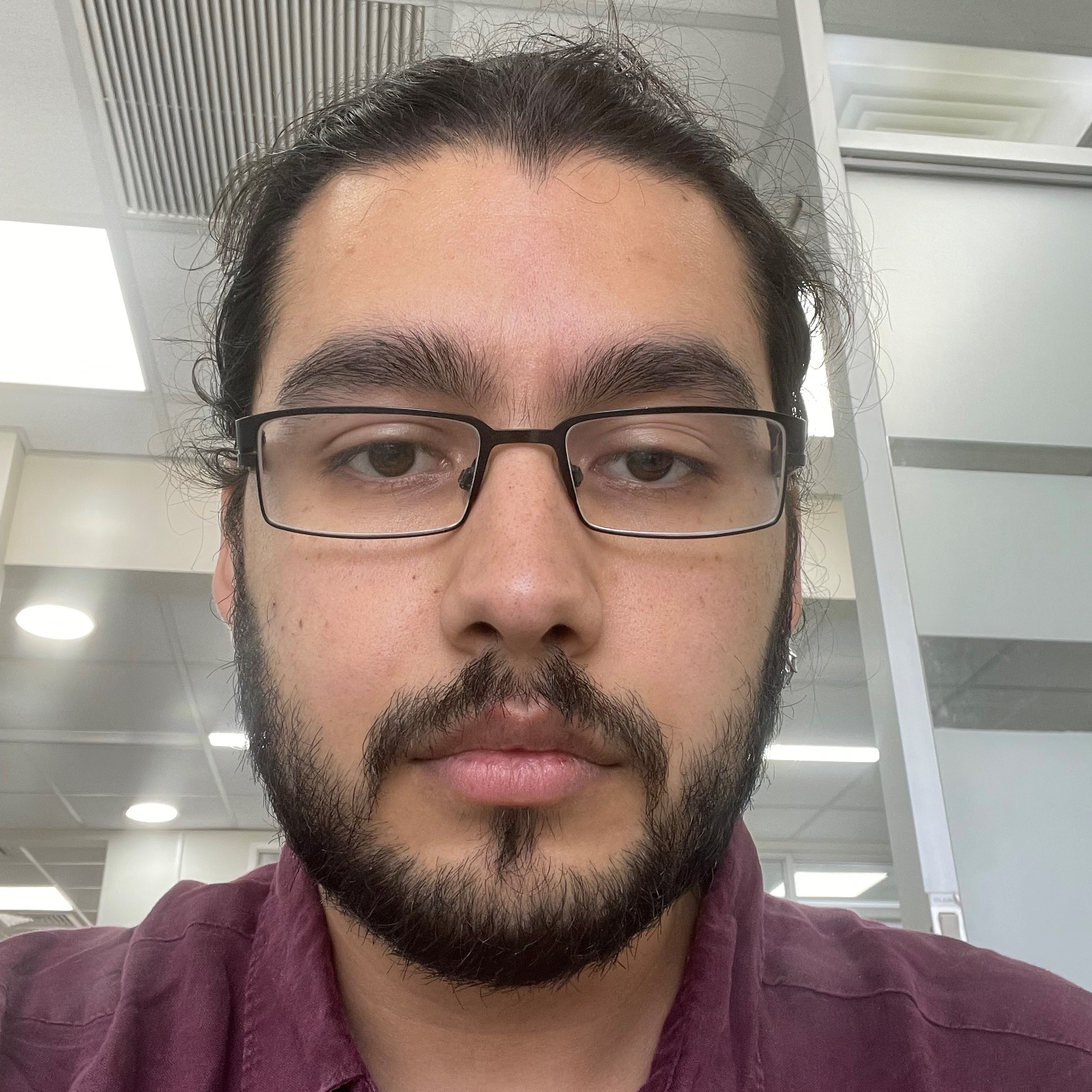
Rodrigo Leiva
Research Assitant

B.Sc(hons) degree in Neuroscience from the University of Glasgow and M.Sc in Integrative Neuroscience from the University of Edinburgh. I’m currently working on the role of axonal necroptosis and inflammation in the dopaminergic neurons of the nigrostriatal pathway in Parkinson’s Disease to assess it as a potential therapeutic target through the inhibition of RIPK3.
Related Publications
PUBLICATIONSNeuroDegenerationAGING
septiembre 5, 2023
Carotid Body-Mediated Chemoreflex Function in Aging and the Role of Receptor-Interacting Protein Kinase
Esteban Díaz-Jara, Karla G Schwarz, Angelica Ríos-Gallardo, Camilo Toledo, Julio A Alcayaga, Felipe A Court, Rodrigo Del Rio.
Adv Exp Med Biol. 1427:195-201. doi: 10.1007/978-3-031-32371-3_21.
PUBLICATIONSNeuroDegenerationAGING
abril 19, 2023
Necroptosis inhibition counteracts axonal degeneration, cognitive decline and key hallmarks of aging, promoting brain rejuvenation.
Macarena S. Arrázola, Matías Lira, Gabriel Quiroz, Somya Iqbal, Samantha L Eaton, Rachel A Kline, Douglas J Lamont, Hernán Huerta, Gonzalo Ureta, Sebastián Bernales, J César Cárdenas, Waldo Cerpa,Thomas M. Wishart, Felipe A. Court
Aging Cell. Mar 27;e13814. doi: 10.1111/acel.13814. Online ahead of print.
PUBLICATIONSNeuroRegenerationAGING
enero 25, 2023
Senescent Schwann cells induced by aging and chronic denervation impair axonal regeneration after peripheral nerve injury
Andrés Fuentes-Flores, Cristian Geronimo-Olvera, David Ñecuñir, Sandip Kumar Patel, Joanna Bons, Megan C Wright, Daniel Geschwind, Ahmet Hoke, Jose A. Gomez-Sanchez, Birgit Schilling, Judith Campisi, Felipe A. Court
PUBLICATIONSDataPNSNeuroRegeneration
septiembre 26, 2022
Neuronal activity-dependent ATP enhances the pro-growth effect of repair Schwann cell extracellular vesicles by increasing their miRNA-21 loading
Cristian Saquel, Romina J. Catalan, Rodrigo Lopez-Leal, Ramon A. Ramirez, David Necuñir, Ursula Wyneken, Christophe Lamaze and Felipe A. Court
Related News
Expertos analizaron los desafíos del envejecimiento y la gerociencia en Chile y el mundo
enero 22, 2024
Destacados referentes como Brian Kennedy, Felipe Sierra y Cecilia Albala expusieron en el simposio organizado por el Centro de Gerociencia, Salud Mental y Metabolismo GERO, compuesto por académicos…
Destacados expertos abordarán los avances más recientes en el campo de la gerociencia y el envejecimiento
enero 16, 2024
Organizado por el Centro de Gerociencia, Salud Mental y Metabolismo, GERO, este miércoles 17 de enero se realizará un simposio que reunirá a líderes en estas áreas, como Felipe Sierra, Cecilia…
